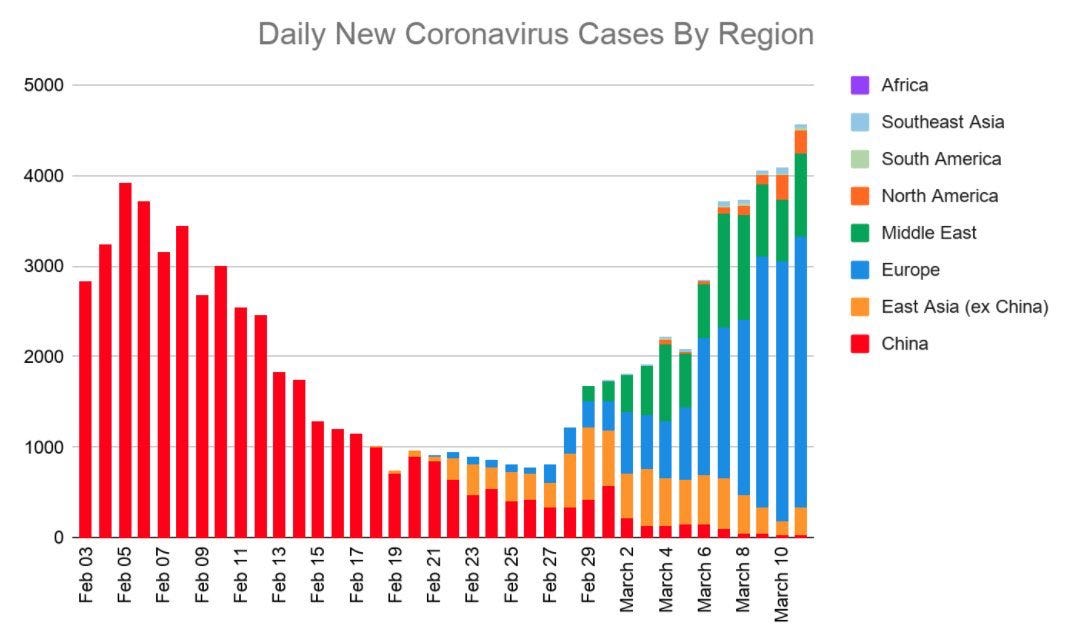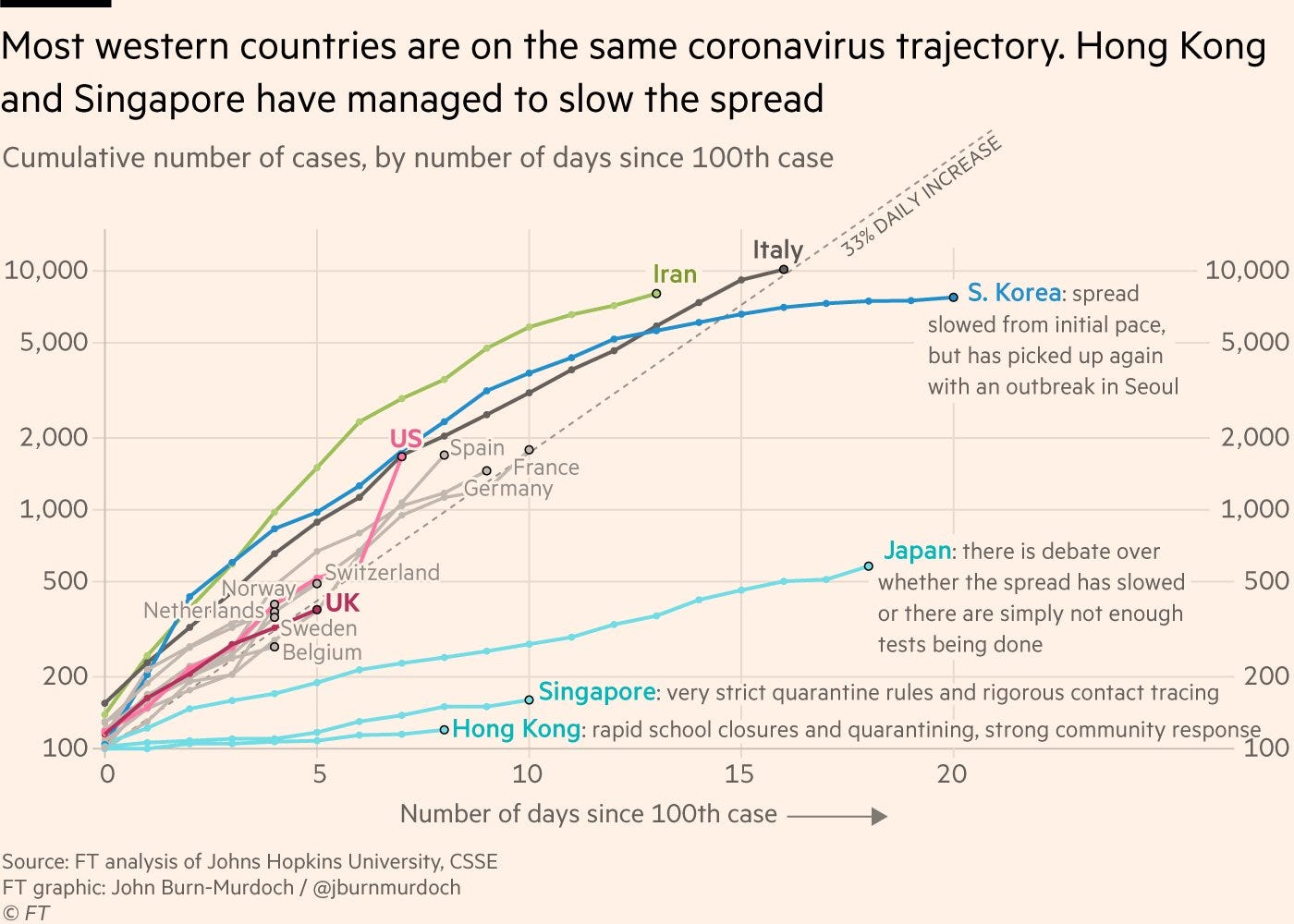Cancel the events, stop the spread, keep people alive.
From the FT:
The government is coming under increasing pressure to ban major public events, such as sporting fixtures. But Mr Johnson said it would have “little effect” on halting the spread of the disease. “At all stages, we have been guided by science. We will do the right thing at the right time.”
For context, there was a big parade in Spain recently, which went ahead on the say so of a minster, who was then diagnosed with the virus a few days later. Cases in Spain jumped from 1,638 to 2,968 in 24 hrs.
By contrast, in South Korea, cases are now dwindling after an impressive distancing and testing response.

We are now in a position where this is a European problem, not an Asian one.

There's a clear reason to fear that the European response is wrong, compared to the Asian response.

Now, for sure, we don't know how this is going to play out. Asia may get another wave. Herd immunity might be better in the long run. But I don't see the evidence for that. It seems to me that the less we do now, the more we have to deal with later.
You'll note from this graph that the US, which is doing very little to counteract the virus, is closing in on Italy's contagion rate. As of yesterday, there were 196 deaths in the last 24 hrs in Italy, and more than 2,300 new cases.
Which means that Italy is unable to treat everyone it needs to. Their healthcare system is overwhelmed. The Atlantic reported this on 11/03:
Today, Italy has 10,149 cases of the coronavirus. There are now simply too many patients for each one of them to receive adequate care. Doctors and nurses are unable to tend to everybody. They lack machines to ventilate all those gasping for air.
And this:
Those who are too old to have a high likelihood of recovery, or who have too low a number of “life-years” left even if they should survive, will be left to die. This sounds cruel, but the alternative, the document argues, is no better. “In case of a total saturation of resources, maintaining the criterion of ‘first come, first served’ would amount to a decision to exclude late-arriving patients from access to intensive care.”
In addition to age, doctors and nurses are also advised to take a patient’s overall state of health into account
The epidemiologist Mark Lipsitch has shown data from two different Chinese provinces to show the benefit of early containment.
Early intervention means before it feels bad. Guangzho intervened when they had 7 confirmed cases & 0 deaths. Wuhan's came when they had 495 confirmed cases, 23 dead
You can see the difference that makes on these graphs:

The reason why this matters is healthcare system capacity. We don't want cases to spike so much that we end up like Italy, simply unable to treat the people we need to treat. As Helen Branswell says,
If a hospital is overwhelmed by Covid-19 cases, patients will have a lower chance of surviving than they would if they became ill when the hospital’s patient load was more manageable. People in car crashes, people with cancer, pregnant women who have complications during delivery — all those people risk getting a lesser caliber of care when a hospital is trying to cope with the chaos of an outbreak.
That article in The Atlantic was written by Yascha Mounk, a moral philosopher, by the way, not a scientist. He admits that his years of studying moral dilemmas and trolley problems has not made it possible to know what to do, or what the correct scientific judgement is. He does remind us of the simplicity of the moral imperative to keep people alive.
if Italy is in an impossible position, the obligation facing the United States is very clear: To arrest the crisis before the impossible becomes necessary.
This means that our political leaders, the heads of business and private associations, and every one of us need to work together to accomplish two things: Radically expand the capacity of the country’s intensive-care units. And start engaging in extreme forms of social distancing.
Where it says the US, read in also the UK and Europe. I'd rather be Denmark than Italy, if that's the false dichotomy I'm given. Once the system is overwhelmed, we will struggle to get back to a reliable service.
And that leads me to one simple conclusion. As Yascha Mounk says,
We know that is the size of the event, not the number of carriers at the event that makes the big difference to exposure rates.
Cancel the events, stop the spread, keep people alive.

